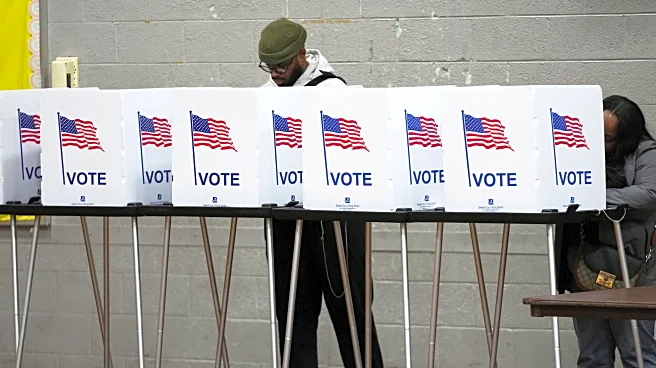What's Happening?
Vivian Tu, a self-made millionaire and founder of Your Rich BFF, has criticized several common financial tips that she believes are misleading and potentially harmful. In her analysis, Tu argues that traditional
advice such as switching careers for higher pay, finding cheaper living arrangements, cutting small expenses, and the notion that money cannot buy happiness are outdated and do not align with the current economic realities. She points out that factors like inflation and stagnant wages have made small indulgences feel more expensive, and that the housing market has become less accessible for young people. Tu also references studies indicating that happiness can increase with income, challenging the old adage that money cannot buy happiness.
Why It's Important?
Tu's critique is significant as it challenges widely accepted financial advice that many Americans have followed for decades. Her insights highlight the evolving economic landscape, where traditional strategies may no longer be effective. This could influence financial planning and advice industries, prompting a reevaluation of how financial literacy is taught. Individuals, especially younger generations, may benefit from more realistic and updated financial strategies that consider current economic conditions. The discussion also underscores the importance of adapting financial advice to reflect changes in the economy, such as inflation and housing market dynamics.
What's Next?
While Tu does not provide specific alternative strategies in her critique, her insights may encourage financial advisors and individuals to seek more tailored and contemporary financial advice. This could lead to a shift in how financial education is approached, with a focus on strategies that are more relevant to today's economic challenges. Additionally, there may be increased interest in exploring new financial tools and resources that align with the current economic environment.
Beyond the Headlines
Tu's critique also touches on broader societal issues, such as the impact of economic inequality and the accessibility of financial opportunities. Her analysis may spark discussions about the need for systemic changes to address these challenges, including policy reforms that support wage growth and affordable housing. Furthermore, her emphasis on the correlation between income and happiness could influence cultural perceptions of wealth and success.










